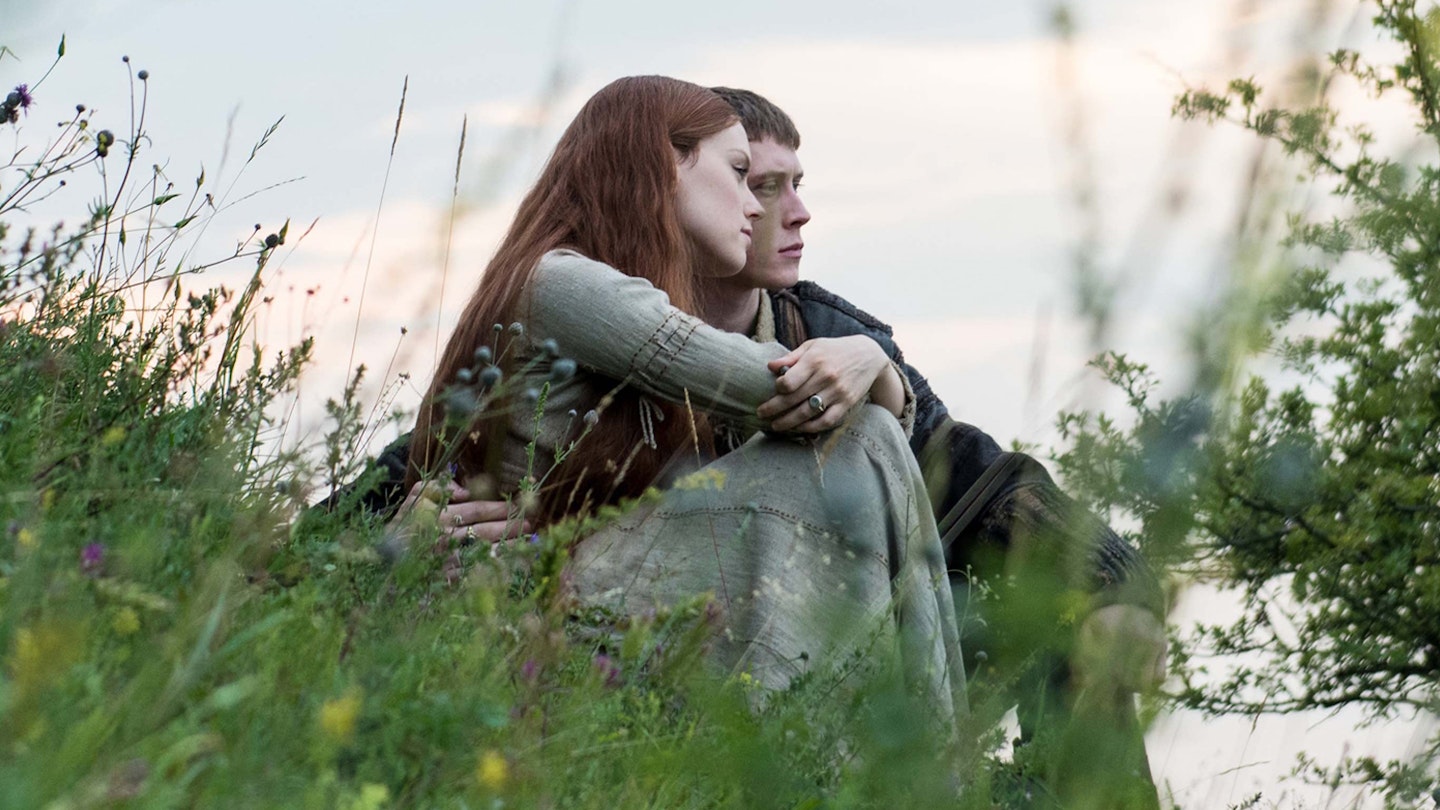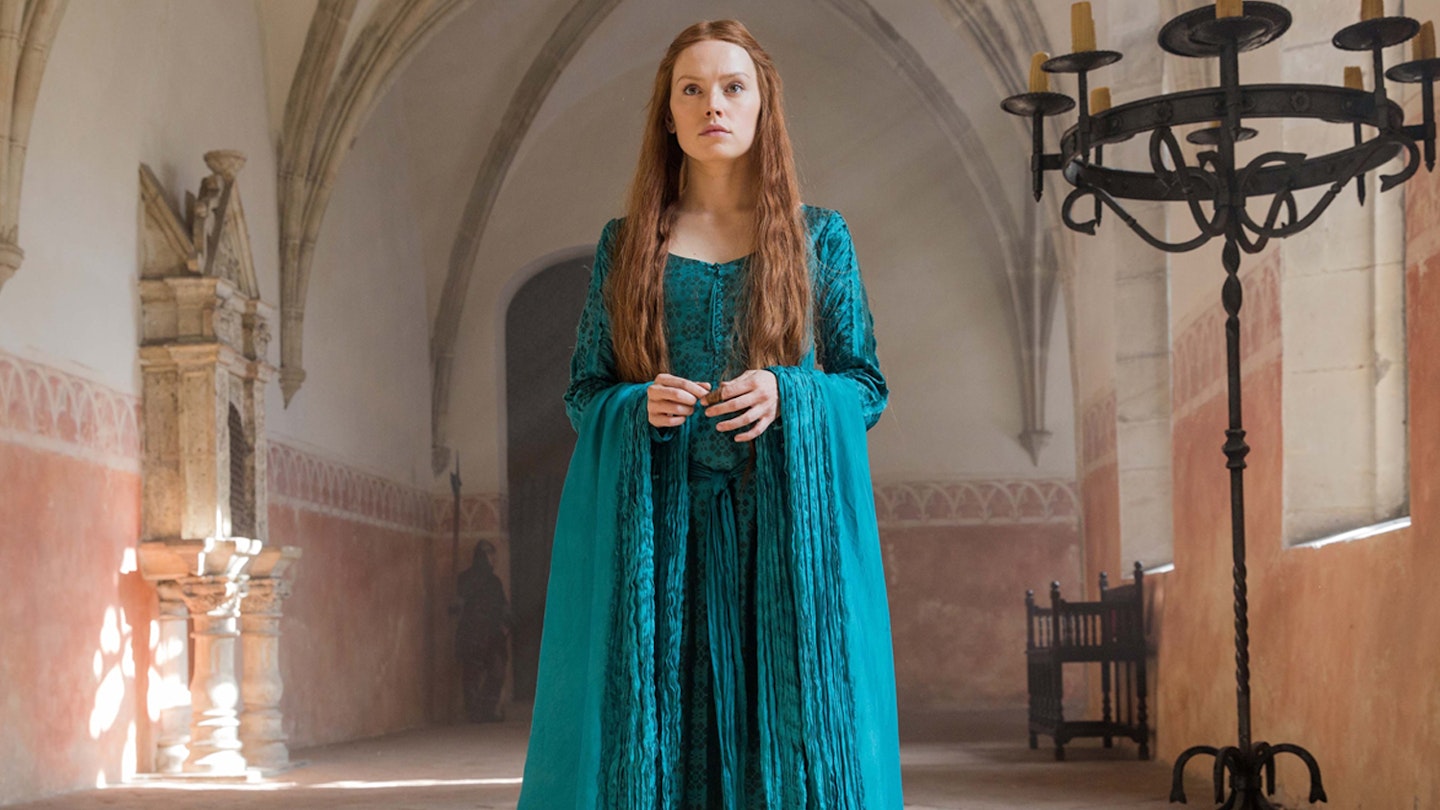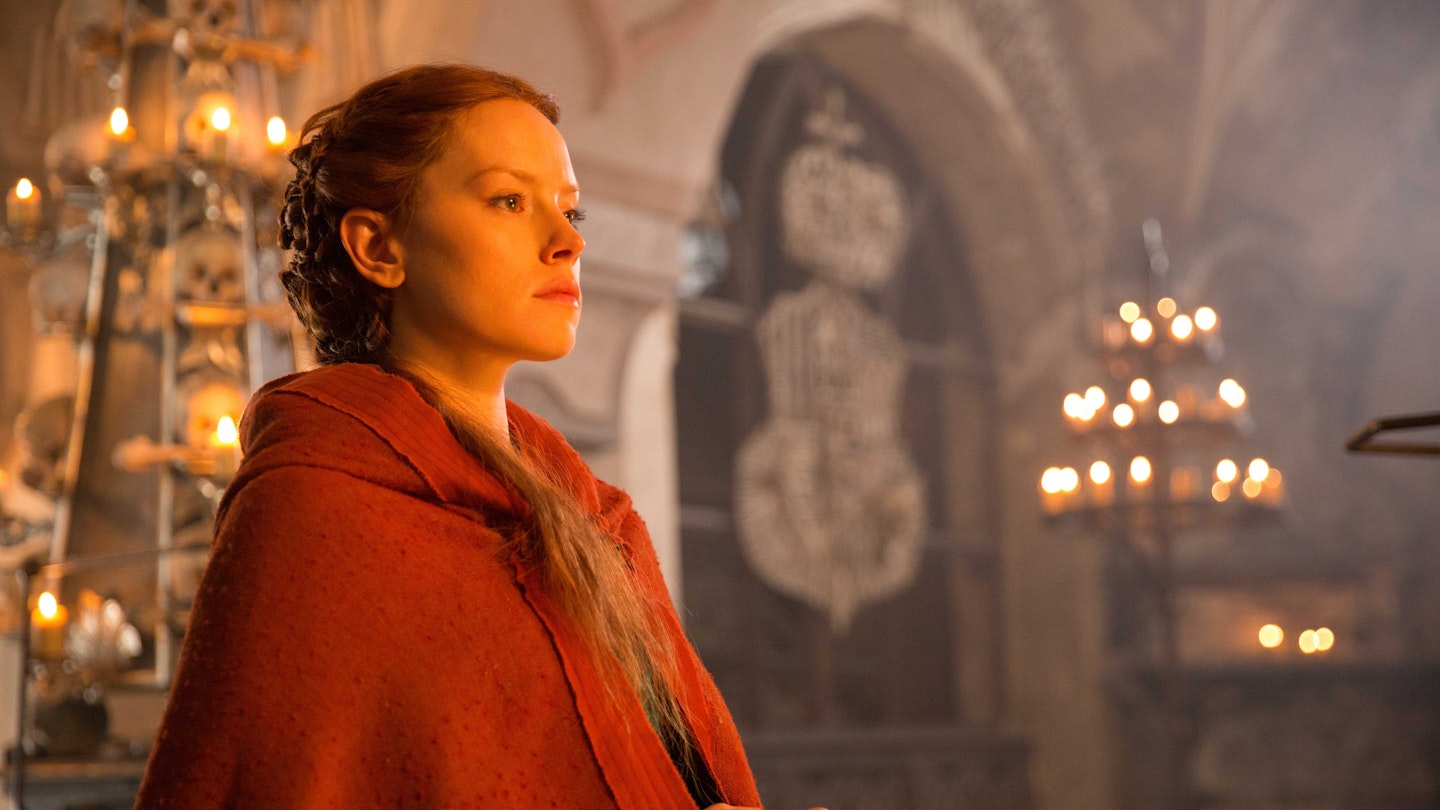Bowing at the Sundance Film Festival in January 2018, Claire McCarthy’s Ophelia is a better film than the long time delay suggests. Based on Lisa Klein’s 2006 YA novel, it takes the events of Shakespeare’s Hamlet and filters them through the eyes of Ophelia (Ridley). It’s a fun, diverting take, but lacks the depths and courage of its convictions to really invigorate the nifty premise.
It sets its stall out in a Sunset Boulevard style as a dead Ophelia, lying in a river surrounded by petals, intones in voiceover, “It is high time I shall tell you my story myself.” We pick up her story six years before Shakespeare. Ophelia is an uncourtly tomboy with a thirst for knowledge (she’s locked out of the library) who grows up to be the favoured lady-in-waiting of Queen Gertrude (Watts), much to the chagrin of the other mean-girls-in-waiting. Gertrude gets Ophelia to read saucy stories in bed and sends her to an apothecary (bizarrely also played by Watts) in the woods for an anti-ageing potion that would fly off the shelf at Boots.

Part of the fun of Ophelia is seeing where it intersects and breaks with the Bard. There’s a beautifully realised take on the play-within-a-play that catches out Claudius (Owen) and some interesting variations on classic lines: “Get thee to a nunnery” is less in anger here and more as a means to get Ophelia to safety. Elsewhere, seemingly lacking confidence in the dramatic strengths of, er, Hamlet, Semi Chellas’ script starts pilfering other Shakespeare plays; the poison plot line of Romeo And Juliet, the cross-dressing of Twelfth Night, even Watts’ witch in the woods smacks of Macbeth.
Daisy Ridley infuses Ophelia with maximum Rey-ness to the extent it wouldn’t surprise you to see BB-8 rolling around Elsinore.
But there are some interesting additions too. Ophelia’s romance with Hamlet (MacKay) is fresh and engaging: the pair meet cute at a lake, dance in slow mo at a masked ball and then carry out a clandestine romance among the ramparts. And, also adding something new to the mix, there can be very few RSC productions that see Ophelia deliver a swift kick in the nuts.
The cast are strong across the board; Watts is a vain, shallow Queen who would have felt at home in Death Becomes Her, MacKay’s Hamlet does away with the dithering — there is no “To be or not to be”-ing here — to be a more straightforward, appealing lead and Owen, sporting mad hair, is hissable as the man who shouldn’t be king. Sporting a long red-y-brown wig, Ridley infuses Ophelia with maximum Rey-ness (strength, smarts, no surname) to the extent it wouldn’t surprise you to see BB-8 rolling around Elsinore. But she also finds enough vulnerability to make the doomed romance work, and creates strong chemistry with Watts.
McCarthy’s filmmaking is consistently impressive, particularly in the last reel action sequences. But the film is based on such a strong premise, you are left with the feeling it didn’t do enough to make it fly. As it progresses, it reneges on the idea of telling Ophelia’s story, side-lining her for the broader story of court/family politics. It course-corrects at the very end, but a lot of the strong work of the first half feels like it has been for nothing.

